Visit to Shangri La
by Air Cmde (Retd) AD Chhibbar
Introduction
We have all heard the famous words attributed to Gen Patton,
No bastard ever won a war by dying for his country. He won it by making some other poor dumb bastard die for his country.
One tried and tested method of protecting one’s own skin in the battlefield is to ‘dig in’ and live underground. Digging trenches became common during the First World War (1914-19). And later the techniques of building ‘bunkers’ improves with each passing year. My personal experience of living in such ‘dugouts’ is limited. But I have seen many such fortifications during my 36 years service in the army from 1961 to 97. The officers of the Navy and the pilots of the IAF fight their battles from ships and aircraft, and therefore they know very little about these ‘foxholes’. Air Commodore Chhibber is an exception. He got an opportunity to visit an army post, and the experience left an indelible mark on him…for good reason. The post which he happened to visit was an unusually well designed and built dwelling unit.
We have received the following account, thanks to his friendship with Wg Cdr J Thomas. We are unfortunate that he does not have pictures of the post. But his description is so graphic that one can create one’s own images. Now, over to Air Commodore AD Chhibber, who is a second generation soldier. His father was an EME officer.
*
The first time I heard about Shangri La was when I read James Hilton’s novel ‘The Lost Horizon’. The author described Shangri La as a mystical, harmonious valley synonymous with any earthly paradise; a permanently happy land, isolated from the outside world. In the novel, James Hilton tells us, the people who live at Shangri-La are almost immortal, living years beyond the normal lifespan and only very slowly aging in appearance. Indeed a very utopian thought. In 1972, post the Indo-Pak War, I had an opportunity to visit Shangri La.
As an Air Force officer, I was part of an ACT (Aircraft Control Team). The other member of the team was an Army Captain. We were to operate atop a hill in the Bomdi La- Se La area of NEFA (North East Frontier Area), now known as Arunachal Pradesh.
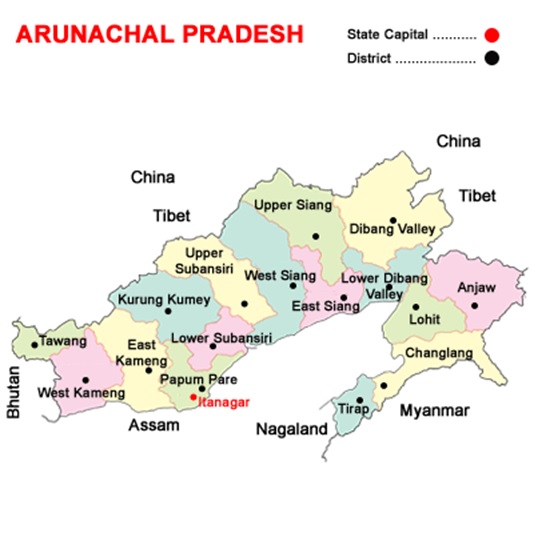 The Army Captain was already at the designated hill (12,000+ feet AMSL), along with the army jawans that made up the ACT. As an Air Force Officer I was asked to report at Upper Senge for acclimatization. Upper Senge was approximately 9000 feet AMSL.
The Army Captain was already at the designated hill (12,000+ feet AMSL), along with the army jawans that made up the ACT. As an Air Force Officer I was asked to report at Upper Senge for acclimatization. Upper Senge was approximately 9000 feet AMSL.
At Senge some warm clothing for high altitude was issued to me on arrival, and a room in the transit Officers’ Mess was allotted to me. The Commanding Officer of the Transit Camp asked me to just walk around in the mornings to get used to the altitude. I was mighty pleased since, as the sole Air Force officer in an Army environment, I was being treated as a VIP. On the second day, soon after lunch, as I was preparing for a siesta, there was a knock on the door. I opened the door to see a jawan salute smartly and inform me that the Command Intelligence Officer wanted to see me in the evening at the Divisional HQ. A jeep would be there to take me to the place. When queried, the jawan told me that “Major saab ke bunker mein dinner hai” (There is dinner organized at the Major’s bunker).
Come evening and I was ready for the drive to Divisional HQ. The driver with the jeep was there on time and we set course. The drive was along the Bomdi La – Se La- Tawang highway. The road snaked its way around the mountainous terrain, going over culverts and small bridges. A few streams carried the rain water, forming small waterfalls at many places along the roadside. Beautiful and wild flowers laced the mountain slopes presenting a beautiful picture. After a drive of about forty five minutes or so we reached our destination.
“Welcome to Shangri La” written in huge and colorful letters welcomed me. Red, blue, green yellow, purple, orange flags were placed around the board and the path leading towards the Officers Bunkers. Apart from the fact that the Army jawans were going about their chores silently, without the usual shouting of orders associated with an Army camp there was no visible signs of the bunkers. The area was naturally camouflaged along with a few garnishing provided by the Army. A relative peace and calm prevailed in the area giving it a surreal appearance. With a gentle jerk the jeep came to halt besides a couple of flower pots. “Sir, Lift the net and go in to the bunker. Major saab is waiting for you,” the driver said, pointing towards a faint path from the flower pots to a hole in the ground.
I lifted the net and saw a hole which actually was a trap-door. A few steps had been carved out. I gingerly descended and entered the bunker. I was stunned to see what I saw! I had stepped in to a room 10’ x 6’ in dimension. The walls had translucent corrugated sheets with a couple of tube lights illuminating the room. In one corner was a wooden bed with a mosquito net hanging from a wooden frame attached to the bed. From the top of the bunker a thick braided rope with a bushy end was swaying gently in the breeze created by a table fan. Next to the bed was a bedside table with a decorative lamp glowing. At the other end was a writing table, with a lamp and a photo frame housing a family photograph within. A “Wow!” escaped my mouth.
“Welcome, friend to Shangri La”, said the Major who had been watching me while lying on the bed. He introduced himself and I was pleasantly surprised that he bore the same surname as mine. “When I heard that a Flying Officer Chhibbar is at the transit officers mess, I decided to get you across”, the Major said with an impish smile.
*
A note from the Editor
Chibbars are part of the close-knit warrior Brahmin clan of Mohyals. See
http://mohyalwarriors.blogspot.in/2011/03/ancient-history-of-mohyals-as-taught.html and the Mohyal Documentary
“Sir, I would not have believed this was a bunker. What a wonderful accommodation you have got here,” I blurted while shaking his hand. “This is nothing. Go through that opening,” he motioned towards a curtain at one end of the room. I lifted the curtain to see a dressing room where the Major’s uniforms, boots and other paraphernalia were kept. Another opening ushered me into the washroom. I was impressed to see a western style WC and when I pulled the handle, water gushed from the small tank in to the flush pot!
“Sir, this is truly amazing. No one standing outside would ever be able to make out the grandeur that lies within!” I exclaimed. “Buddy, learnt from the Ramayana to enjoy life in any environment,” the Major said, grinning. “What would you like to drink?” “Sir, a whisky would do,” I responded. The Major went towards the bed and yanked at the rope hanging there. Like Jack-in-the- Box, a soldier appeared at the entrance. The Major asked him to fix two drinks and bring some snacks too. “The rope is connected to a bell in my batman’s bunker,” the Major said as he saw my astonished look. A couple of the Major’s friends arrived and we had a wonderful evening in the 5 Star bunker.
On my way back I reflected upon what I had witnessed. I did not see a single unhappy soldier. Everyone appeared happy and going about their tasks willingly. The entire mountainside bristled with a kind of peace and happy vibes that I had not seen elsewhere. The Army had truly carved out this place and aptly named it “Shangri La”. In a low whisper I said to no one in particular “If there is a heaven on earth then this is it, this it, this it!”
Se La in September
A Monpa couple
Wg Cdr (Retd) J Thomas writes :
While under training many of our instructors were veterans of World War II and Kashmir. In comparison, we thought we were doomed to spend a lifetime of peacetime soldiering.
How wrong we were !
Our Army course was commissioned in December 1961 and AF in May 1962. Many coursemates were thrown into the 1962 conflict. Tragically, several were killed in the ambush below Senge, near Nyukmadzong on 18 Nov 62. Here is a first person account by Gen (Retd) Deepak Verma:
“I very distinctly remember 18th Nov morning when I witnessed the biggest ever massacre on several hairpin bends in the road in the gorge between Senge & Bridge II (4 Rajput Bn HQ); men climbing the hill towards Bhutan, opp N’dzong, getting shot by the dozen and falling off in the river. Several vehicles (mostly just inducted Nissan 1 Tons) were seen burning in the hairpin bends.
They may have recorded KIA date as 21 Nov as bodies may have been recovered that day when China announced cease fire and moved back from that area.
To the best of my knowledge, 18th Nov was the biggest ambush in that area since all men, material & vehicles were withdrawing on that road that day after assault on Sela on 17th night.”
Senge is Shangri La all right. And “Lost Horizon” was a text book for us in NDA. But the Senge area evokes some painful memories too.
A painful remembrance: 1962 Sino-India war and lessons India learnt
Headlines Today
1962 Memorial at Nyukmadzong
Photographs provided by Hemant Sharma of XIX NDA
Nyukmadzong is on the road from Bomdilla to Sela. It was the place where a major ambush took place on 18 Nov 62.
http://www.bharat-rakshak.com/ARMY/Galleries/Wars/Memorials/Nyukmadzong
Riding From Dirrang To Sela Pass
Sela Pass : Struggling through snow
Sela Pass
Tawang
Kameng River Festival 2016
Miss Capital Traditional Fusion Dance Itanagar
Arunachal Dances
*
The Tailpiece.
I am tempted to add the following piece, which I picked up from the Internet. This description apparently pertains to the First World War, and so it is a hundred years old story. It describes a trench which appears to be in sharp contrast with the above ‘Shangri la’!!!
Brief Biodata – Air Cmde Ashok Chhibbar
Air Commodore Ashok Chhibbar is an alumnus of National Defence Academy. He was commissioned in to the Indian Air Force as a fighter pilot in Aug 1969, and superannuated in Aug 2004. During his service he flew a variety of aircraft mainly fighters and those at Flying Training Establishments. He was a QFI (A2), and underwent the Air Staff and National Defence College courses. Apart from commanding a fighter squadron and two airbases, he has been Air-I of an Operational Cpmmand and Deputy Commandant of Air Force Academy. He was awarded the AVSM in 2001.
Ashok realized his writing instincts early in service life and was a regular contributor to the Air Force Flight Safety Magazine. Post-retirement he took to writing short stories based on his Air Force experiences, some fictional stuff and a few poems. He has authored two books – Raindrops, and The Accidental Pilot.
Air Cmde Chhibbar is married to Veena and they are settled in Pune.




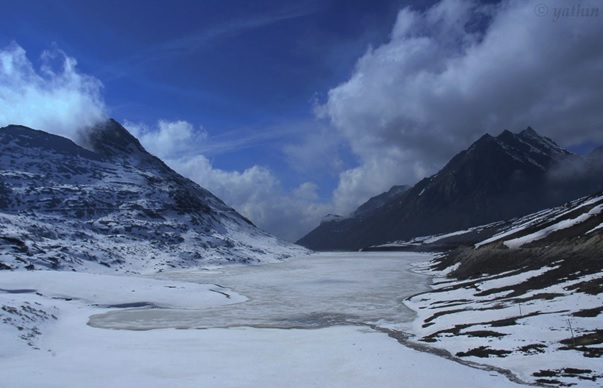
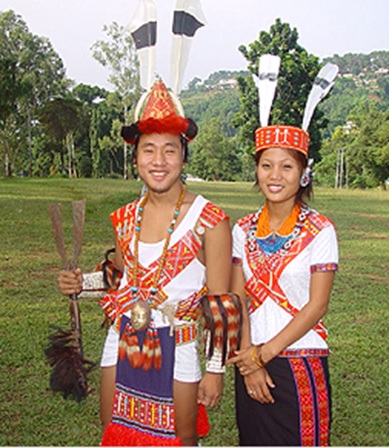
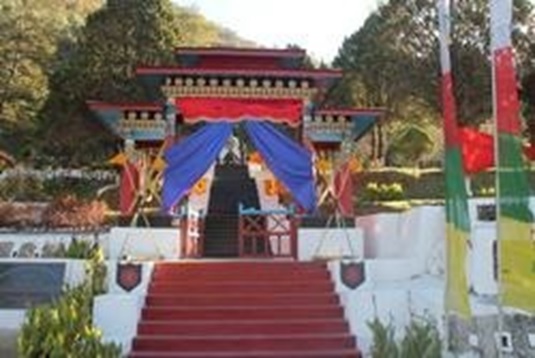
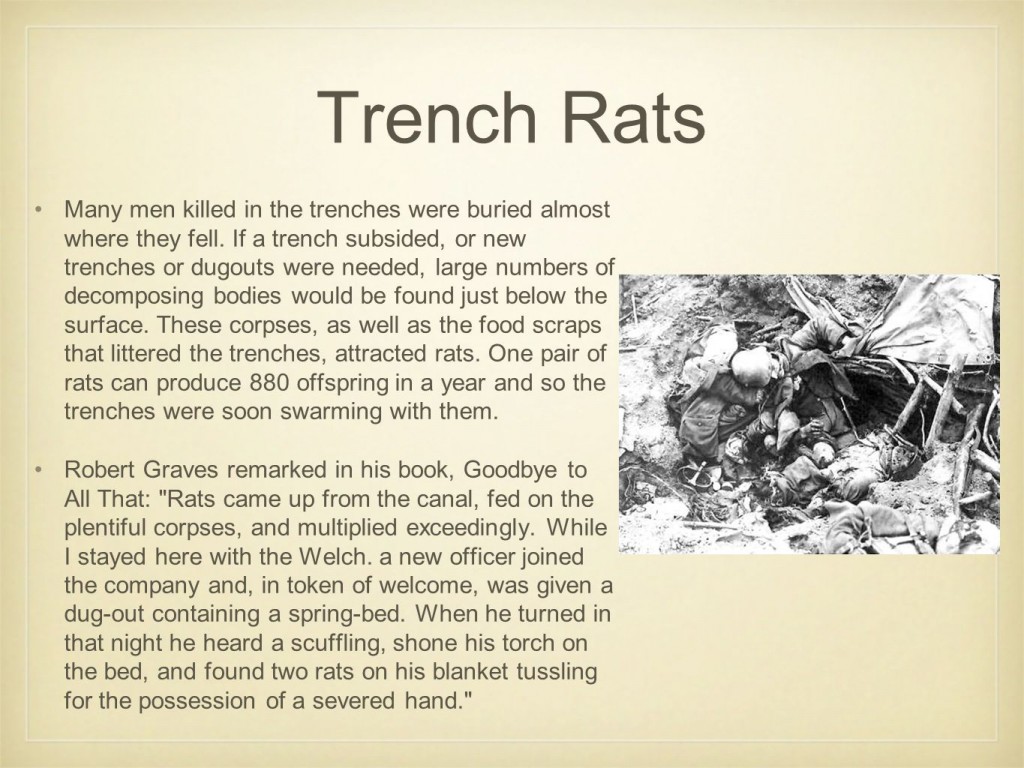





Dear Surjit sir,
Thanks for sharing the subject article and pictures.
Very reminiscent of our days spent there right from my 1966 at Ahir Garh short of Se La, later at Baisakhi, Tawang and areas around not forgetting Shangri La.
Happened to have met your course mate, Brig. Narula, now settled in USA at Maryland.
Warm regards,
Brig. Vashisht
Refreshing article. Takes one thru the scenes fantastically
Thank you, Rustom!
ADC Sir, great writing as usual.
The description and flow is so beautiful that you feel you are sitting alongside and enjoying the natural beauty of the Himalayas and East.
May God Bless.
I am lucky to have such a great writer as my Course mate since 1964.
On behalf of 31st NDA our heartfelt felicitations and may you rise to higher pinnacles.
Khush
Khush, thank you for your generous comments. I am flattered.
Ashok,
Your piece has evoked excellent response. Officers who have served in those areas identify themselves with your narration, and are, sometimes transported back to those places.
When I was in Sikkim, a friend observed that hospitality in those areas is directly proportional to the altitude of the post or picket. If you go to a place like ‘Oontdhar’ (Near Nathu La) you are treated like a VVIP. At the Brigade HQ in Thegu, you are a VIP. In Gangtok, you are still an ‘IP’ but if you go to Sukhna, you will be lucky if you get a cup of tea!
Your respected father was commanding a Border Roads Workshop. However, I missed him by a few months. People spoke very highly about his professional qualities and firm decisions. May the Lord bless you.
Keep writing. You are good at it.
SS
Dear Gen Surjit,
Thank you for posting my story on this site which has given me an opportunity to interact with many renowned people from the Army and other walks of life. Thank you for the words of encouragement that spur me to write more about by interactions with the Army.
I am thankful to you for the kind words written about my late father. He commanded a BR workshop at Somdrup Jhonkar. Bhutan in 1961-62.
Warm Regards,
Ashok
DEAR SURJIT JI …Hmmmmmm
Grateful for being thankful
and yes
When I was active in 1971 war
Offg AAG Sukhna Corps
Please note
SUKHNAAL SUKHNA CORPS
SENT 93 000′S POW’S TO INDIAN CAMPS
went about BD
for ten days during active ops
stayed with Bns
and enjoyed their hospitality
they looked after me
and
followed up with a MESS BILL
I paid smilingly
so till today
I am Happy
We must all maintain life’s
Standards and Army’s Decorum
THEN ONLY WE ALL WILL BE KNOWN AS MILITARY
and Addendum
ma’am PM
earned a Bharat Ratan
Sam Bahadur became a FM
AND
MS Br
was so kind to honour my achievement
instead of a VSM
they doled out a
Super….SESSION
their sense of appreciation
and
ensured the balance career
I lead in
HIBERNATION
ALL IS DIVINE’S RENDITION
Thanks for the opportunity you give to us
to enjoy your literary lavish meals
ole guy colls
since cooled…
in Canada
minus 35 degrees
Now
INTERNATIONAL POET
many accept
may be
now also thee
I also happened to be there in 1962 Ops. Surjit, your post makes a good read. Thanks.
Beautifully articulated, as always and very well presented on this site.
Thank you, Sunayana!
Ashok, reading this article felt like I was actually present with you there. How I wish I could go there. How come you got the talent of writing so beautifully when we both had the same teacher. Lol. I also noticed that your writing is appreciated and respected by many. Good job CD, that’s how I’ve always known you. God Bless and I look forward to reading another book by you.
Icky.
Thanks, Ike…..you are very generous with your comments. I am sure if you or anyone takes to writing will do an equally good job, if not better. Thanx once again!
THERE R MORE THAN 5 COMMENTS
UR SCORE BOARD STILLS SAYS 5
I get a dozen emails on shangrila
o bhai
Thank you…..the numbers are adding up!
Great read. Good to visit it again through Chibber’s writing. Was there in 1962 and the area has prospered and looks very inviting.
All the videos are well curated and attached. It is a forgotten part of India. Hope present Government will pay mor attention to these areas.
Thank you, Sir.
Thank you for sharing this link……a bygone era….a time when dedicated men and women…..felt there were obligations and not entitlements … sensed they had duties….were wedded to a larger cause….pelf and greed was not there…..but service was their motto….
I wrote a piece some time ago on the need for a war memorial….India’s military has a hoary past but alas in Modi’s India even the nation’s sword arm has got tainted….
Thanks. See goo.gl/jiylw9
for National Military Memorial, Bangalore
Thanks Ashok for taking me down memory lane. I commanded a fd wksp in Senge with only five years of service during 1968-1971 and stayed in the HAA for over 2 years. The scars of the 1962 war were still fresh and the men had to be constantly motivated to remain alert and fighting fit. Life was indeed difficult with no alternatives except the unit. Yes, the bunkers were fairly comfortable but it couldn’t prevent the food from becoming cold in covering the short distance from the kitchen to the dining table. Such was the intensity of the cold. A trip to Tenga in those days was like going to Connaught Place in Delhi. Such was the deprivation in Senge. But we all braved it and even now carry happy memories of my tenure in HAA.
There is a link given on Muhiyals. I shall certainly go through it.
Incidentally, you may be my brothers, Flt Lt Yogi Mehta’s coursemate.
Thank you, General Mehta! Your comments inspire me to write more on my adventures with the Army in the North East
Thanks Bwana.
Actually, the first time I heard this was in 1960 when Gen Thimmayya visited NDA. While addressing us in the context of war and close combat he said
“In war it is either you or him. It better be him.”
JT
Dear Sir,
Hope you and Ma’am are doing well.
One is fortunate to be on your mailing list to enjoy reading such variety and range of articles . These transport you into the good old world and sometime walk you through the memory lane reminiscent of one’s own experiences of the places and happenings.
Just to join the links and update you, I am presently working as CEO of a foundation called the The Hans Foundation and enjoying doing the charity work. Madhu is well and enjoying her post retirement role . Both daughters are abroad , one in US and another in UK . Both are working and well settled abroad.
Regards,
Gen Mehta
An interesting take by an IAF officer on Pongos making themselves
comfortable in bunkers.
Surendra Rishi
Thank you, Gen Rishi…..it indeed was a privilege to have been with the Army for those few wonderful days!.
Respected General,
I have had the privilege of commanding a Field Wksp at Senge in support of a Mountain Bde Gp during 81-82.
Regards,
Col JSBhangu
Excellent article, Sir.
Col JPSSuri (Veteran)
MSc, MTech(IITD), FIE, FIETE, PSc,
Ex-Assoc Professor, MRIU, FBD
Thank you, Col Suri.
Dear General,,
Well written. I was nostalgic reading all the places. Thanks
Best regards
Ramani k
Thank you for your comments, Ramani.
Dear General Sahib,
Excellent account of life in the forces.
Like your father, my father was also in the Army – joined Madras Sappers as a Second Lieutenant in 1939. His younger brother also joined the army as well as my brother.
I could not join the services because my poor eyesight -4.5 R and -5.25 L.
Have great respect for the services, their life and camaraderie.
Warm Regards,
Saravjit
Thanks, Sarvjit.
Surjit and JT
I was curious as to whether Patton ever made the remark attributed to him. I have not seen the movie Patton so was unaware that the “quote” was used in it.
Anyhow, this is what I dug up – some interesting tidbits here that you may wish to share with your readers.
http://quoteinvestigator.com/2015/04/24/war/
Warm regards,
Cheerz….Bwana
Surjit
Thanks. Nice story.
As always, JT adds color, vibrancy and pathos. I was struck by the story of the bunker with the rats.
People generally do not have any sense of the sacrifice that soldiers make and even less sense of how politicians are willing to send someone else’s kid to die for their ego-driven nonsense. It is not always that a nation faces an existential threat as many did during WWII, and perhaps India did in 1962, or Israel faces every day.
Oh, and also I was struck by Chibber’s recounting that, when asked what he’d like to drink, he said “whiskey will do.”
Be well.
Cheerz…Anil
Thank you, Anil for your comments on the story.
SHANGRILLA HAI! A LOVELY… LIVELY DISCOURSE Sir
A MUST READ
ADD ON PLEASE SURJIT JI
”Women anywhere
spread fragrance
no matter
what be the distance…..
Thank you, Col Kohli.
Grateful for being thankful
and yes
When I was active in 1971 war
Offg AAG Sukhna Corps
SENT 93 000′S POW’S TO INDIAN CAMPS
went about BD
for ten days during active ops
stayed with Bns
and enjoyed their hospitality
they looked after me
and
followed up with a MESS BILL
I paid smilingly
so till today
I am Happy
We must all maintain life’s
Standards and Army’s Decorum
THEN ONLY WE ALL WILL BE KNOWN AS MILITARY
A delightful read- my compliments to the Author and the ‘in support’ team that has embellished the piece so well. This is indeed a gripping and graphic account that makes his long-ago experience come alive to the reader. It is also a ‘virtual’ 5 star experience which should not become a benchmark of ‘pongos’ life in underground bunkers. Generators, lights and luxuries as depicted, represent the life of the ‘decadent staff officers and services at HQ or fire support/ logistic bases’- not the PBI on the firing line! The misery of those poor bu***rs’ may not be as pitiful as depicted in WW1 trenches but is still well below unstarred level. But the Military-ethos of making itself comfortable in whatever circumstance continues to be a solid strength. It is the instinct of the ‘survivor’, which is inherited and ingrained from NDA days!
Thanks, Yogi for the very generous comments. It was a privilege for me to be in an Army environment, and was fortunate enough to see how the army personnel make themselves comfortable in adverse conditions.
I was curious as to whether Patton ever made the remark attributed to him. I have not seen the movie Patton so was unaware that the “quote” was used in it.
Anyhow, this is what I dug up – some interesting tidbits here that you may wish to share with your readers.
http://quoteinvestigator.com/2015/04/24/war/
Warm regards,
Cheerz….Bwana
Thanks Bwana. Actually, the first time I heard this was in 1960 when Gen Thimmayya visited NDA. While addressing us in the context of war and close combat he said “In war it is either you or him. It better be him.”
Thank you, Bwana! The Patton quote was indeed used in the movie!
thank u for this superb article. my compliments 2 Air marshal Chhibber for a fine piece
Can I have hisemail id—if not an introduction!
Incidentally Thomas (Tommy) and myself are lifelong friends—-classmates at Lovedale.
btw I have a slight Army exposure
Spent time as a NCC cadet (2nd Bengal armd sqdrn ncc) at CIH Babbina where Karam Singh was CO and Gen Dharghalkar(more brit than the brits) was GOC Kala haathi
In those days (1958) getting into ARMD SQN NCC was very tough
But the experience was memorable!!
btw my Uncle was a Gunner and rtd as Head of ima—–Gen Prabhu
thanks for a wonderful fwd!!
Thanks Arvind. Just a small correction to your comment…I retired as an Air Commodore, I only dreamed of being an Air Marshal!
Surjit,
Thanks. Nice story.
As always, JT adds color, vibrancy and pathos. I was struck by the story of the bunker with the rats.
People generally do not have any sense of the sacrifice that soldiers make and even less sense of how politicians are willing to send someone else’s kid to die for their ego-driven nonsense. It is not always that a nation faces an existential threat as many did during WWII, and perhaps India did in 1962.
Oh, and also I was struck by Chibber’s recounting that, when asked what he’d like to drink, he said “whiskey will do.”
Be well.
Cheerz…Anil
A very nice piece on the Life of Soldiers in the Forward posts. I remember my innings with Border Roads in Ladakh way back in the sixties and later my tenure with the EME Battalion in Sikkim.in the eighties. I had the pleasure of visiting the North East upto Tawang and also fly at tree top heights in an AN 32 over Arunachal Pradesh during my Higher Command course. The article brought up a lot of Nostalgia and thank you Air Cmde Chhibbar for this .
Warm regards
Harikumar
Thank you, Brig Harikumar. I am glad that the article evoked a recall of memory of the days in NEFA.
They say
”Distance lends beauty to the scene…”
seeing this wonderful discourse
it makes me say
otherwise
”Women anywhere spread fragrance
no matter what be the distance….
Colls Happy reading
Those were the days the Indian airforce was building the air bases in Nagaland. My father, Late Air Cdre Daysl Singh, used to tell us stories about how they made friends with the locals by air dropping stray dogs caught from Delhi and air dropped from Dacotas near the propsed runways. The lcals started looking forward to these air sorties.
Ashok has a natural talent of storey telling.
He has really painted the picture of forward area life of the faujis in his SHANGRILA.
Thoroughly enjoyed the narrative.
Thank you, Sir!
Aided by distant memories of a few brief visits to the area, can picture the beauty & serenity of what it is like in peace-time. Triggered by the author’s graphic description it was a nostalgic pleasure to let the mind take itself many many years back in time and let it wander where it would. Thats one view of the prism.
Another view is of the aftermath of 1962. Just as one carries memories of the beauty of the place, one also feels and senses the eerie stench of carnage that took so many brave unwary of our men and officers laying giving their all for a cause they held dearer then life. We must keep their tale alive.
Thank you for a well written, pleasant reading experience.
Dara Cooper
Thank you for your comments, Dara Sir!
A simple but beautiful story made so interesting. Wonderfully articulated and leaves a lasting impression. I have flown supply dropping flights in this most beautiful place in the world so I can relate with it more intimately.
Thank you, Abhay!